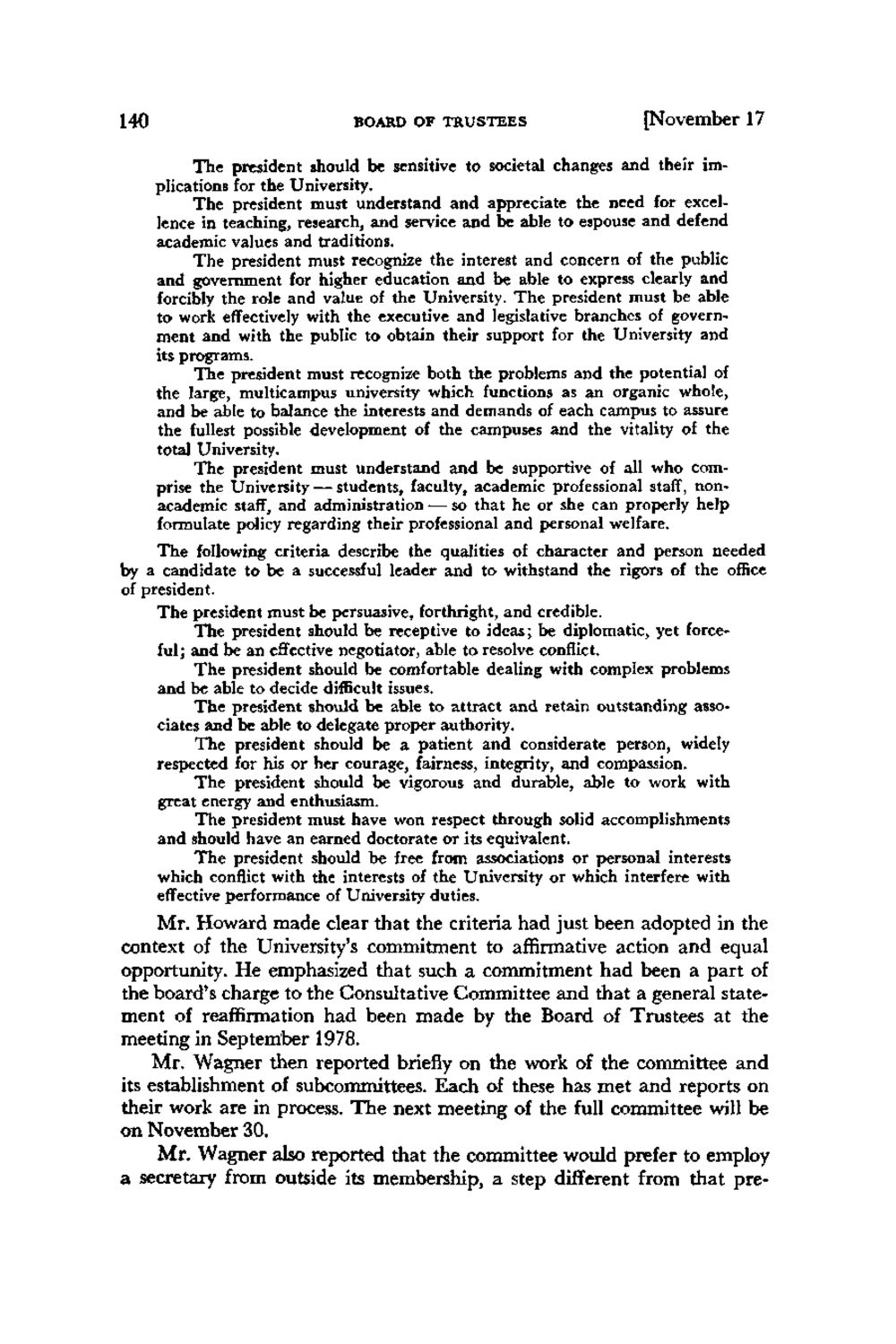| |
| |
Caption: Board of Trustees Minutes - 1980
This is a reduced-resolution page image for fast online browsing.

EXTRACTED TEXT FROM PAGE:
140 BOARD OF TRUSTEES [November 17 The president should be sensitive to societal changes and their implications for the University. T h e president must understand and appreciate the need for excellence in teaching, research, and service and be able to espouse and defend academic values and traditions. The president must recognize the interest and concern of the public and government for higher education and be able to express clearly and forcibly the role and value of the University. T h e president must be able to work effectively with the executive and legislative branches of government and with the public to obtain their support for the University and its programs. The president must recognize both the problems and the potential of the large, multicampus university which functions as an organic whole, and be able to balance the interests and demands of each campus to assure the fullest possible development of the campuses and the vitality of the total University. The president must understand and be supportive of all who comprise the University — students, faculty, academic professional staff, nonacademic staff, and administration — so that he or she can properly help formulate policy regarding their professional and personal welfare. T h e following criteria describe the qualities of character and person needed by a candidate to be a successful leader and to withstand the rigors of the office of president. The president must be persuasive, forthright, and credible. The president should be receptive to ideas; be diplomatic, yet forceful; and be an effective negotiator, able to resolve conflict. T h e president should be comfortable dealing with complex problems and be able to decide difficult issues. T h e president should be able to attract and retain outstanding associates and be able to delegate proper authority. The president should be a patient and considerate person, widely respected for his or her courage, fairness, integrity, and compassion. T h e president should be vigorous and durable, able to work with great energy and enthusiasm. T h e president must have won respect through solid accomplishments and should have an earned doctorate or its equivalent. T h e president should be free from associations or personal interests which conflict with the interests of the University or which interfere with effective performance of University duties. Mr. Howard made clear that the criteria had just been adopted in the context of the University's commitment to affirmative action and equal opportunity. He emphasized that such a commitment had been a part of the board's charge to the Consultative Committee and that a general statement of reaffirmation had been made by the Board of Trustees at the meeting in September 1978. Mr. Wagner then reported briefly on the work of the committee and its establishment of subcommittees. Each of these has met and reports on their work are in process. The next meeting of die full committee will be on November 30. Mr. Wagner also reported diat the committee would prefer to employ a secretary from outside its membership, a step different from diat pre-
| |